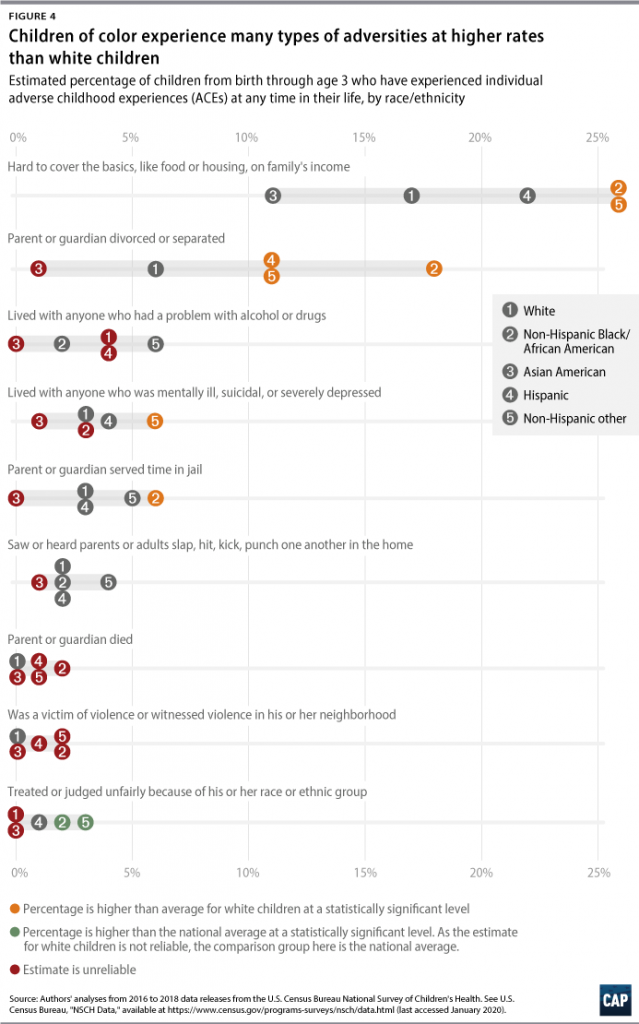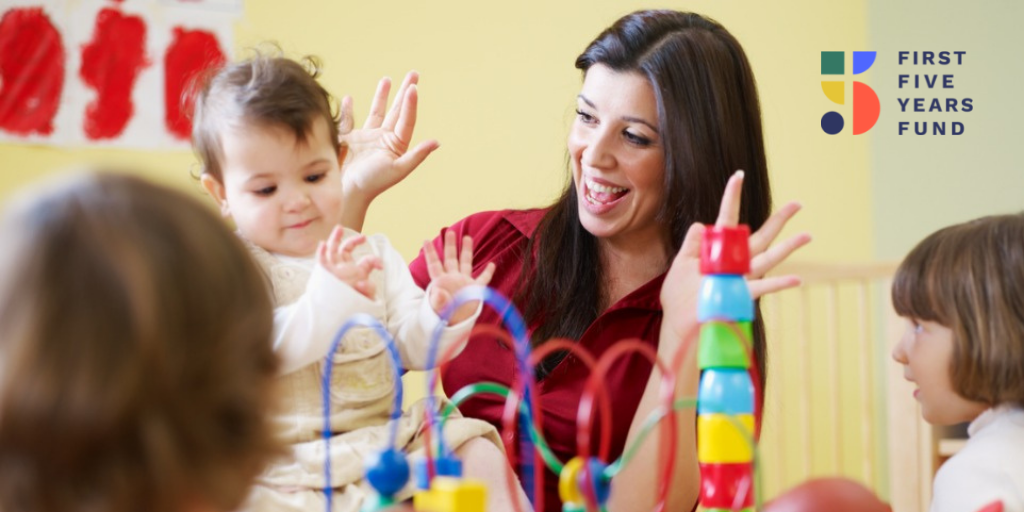Report Examines Adverse Childhood Experiences in Early Childhood

Research shows that young children develop 1 million new neural connections every second making early childhood a crucial for long-term development. Research also finds that children’s social environments play an important role in that development, potentially helping connections build or strengthen over time. Therefore, when children experience adversity, such as poverty or family dysfunction, brain development can be negatively affected.
These instances of adversity, known as Adverse Childhood Experiences (ACEs) have been the subject of several long-term studies. While exposure to adverse events is not a diagnosis and does not represent a specific health problem, research has shown association between numerous ACEs and negative long-term health consequences. Without adequate support from adults, ACEs can trigger prolonged stress responses in a child’s brain, causing toxic stress, and ultimately changing what connections are built in their rapidly developing brains.
A recent report from the Center for American Progress (CAP) examined U.S. Census Bureau’s National Survey of Children’s Health to better understand the prevalence of ACEs specifically in young children. CAP’s analysis found that more than 1 in 4 young children in the United States have been exposed to at least one ACE. Reflecting the societal patterns of America’s racial bias, the researchers also found that children of color are disproportionately more likely to have exposure to ACEs in early childhood.

The report found that family economic difficulty was the most common form of adversity for young children. One in five young children live in a family that has struggled to cover the cost of basic needs such as food or housing. The report also outlines other adverse events and uses data to provide state-by-state numbers.
Finally, the report makes recommendations for policy makers as they consider ways to address exposure to ACEs. CAP’s recommendations include implementing and expanding programs that support young families, expanding infant and toddler mental health services, expanding home visiting programs, supporting improved screening tools, and funding longitudinal research. In addition to the recommendations, the researchers highlight existing state-based efforts to screen for ACEs and mitigate their long-term impacts.
You can read the full report here.
Subscribe to FFYF First Look
Every morning, FFYF reports on the latest child care & early learning news from across the country. Subscribe and take 5 minutes to know what's happening in early childhood education.



